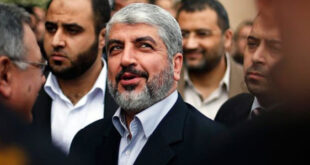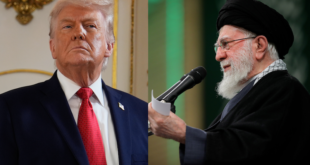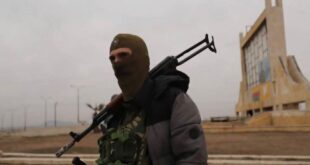 MOSCOW (Reuters) – Russia warned NATO on Friday against expansion into ex-Soviet neighbors Georgia and Ukraine ahead of a NATO summit next week that will discuss what Moscow sees as deep encroachment into its backyard.
MOSCOW (Reuters) – Russia warned NATO on Friday against expansion into ex-Soviet neighbors Georgia and Ukraine ahead of a NATO summit next week that will discuss what Moscow sees as deep encroachment into its backyard.
In separate comments, Foreign Minster Sergei Lavrov and a Kremlin spokesman said possible NATO membership for the two countries would have repercussions for any plans to improve Moscow’s ties with the Western military alliance.
Lavrov warned Georgia against using NATO membership as a tool to regain control over its rebel regions of Abkhazia and South Ossetia, which broke away in the 1990s and enjoy Russian support.
“Concerning South Ossetia and Abkhazia, if Georgia intends to gain NATO support in order to solve these two conflicts by means of force, it’s a dangerous game,” Lavrov told journalists.
“The population of South Ossetia and Abkhazia cannot think of joining NATO,” he said after meeting his colleagues from the post-Soviet Commonwealth of Independent States. “In such a complicated issue it’s a dangerous game to play with fire.”
Georgia, whose pro-Western leaders want to move out of Moscow’s orbit, is seeking membership in NATO and the European Union. Ukraine also hopes the NATO summit in Bucharest next week will grant it a roadmap towards joining the alliance.
The United States is backing both bids. But France, Germany and some other European nations say the move would be untimely.
UNILATERAL ACTIONS
President Vladimir Putin, who hands over power to successor Dmitry Medvedev on May 7, will attend the summit although Russia’s strong opposition to the plan has become a factor souring its ties with NATO, said the Kremlin spokesman.
“The realization of an ‘open door’ policy towards Ukraine and Georgia will be a sign for us that the West has made its choice in favor of unilateral actions rather than forming Trans-European institutions,” Dmitry Peskov said.
NATO members opposed to giving Georgia a membership roadmap in Bucharest say the country is not ready to join because its separatist conflicts make it inherently unstable.
Underlining the challenge facing Georgia in Bucharest, the Organization for Security and Cooperation in Europe (OSCE) on Friday expressed concern about a spate of bombings in South Ossetia in the past month.
“Since 28 February three separate bomb incidents have killed three people and seriously wounded at least five others,” said Finnish Foreign Minister Ilkka Kanerva, whose country holds the OSCE’s rotating chairmanship.
“I am saddened by these casualties and seriously concerned about the increasing number of violent incidents and the escalation of tension in the area of conflict,” he said.
A Georgian official said the bombings were an attempt to discredit Tbilisi’s NATO bid.
“There are attempts to provoke a war in the region and get Georgia involved in combat operations in order to hinder Georgia’s integration into NATO,” said Georgia’s State Minister for Reintegration Temur Iakobashvili.
Georgian President Mikhail Saakashvili on Friday offered Abkhazia a power-sharing deal if it agreed to accept Georgia’s sovereignty.
He offered the rebel region free trade zones, seats in parliament and the right to appoint a vice president in his administration, on top of the broad autonomy he has already proposed for the separatists.
Abkhazia and South Ossetia have said they will settle for nothing short of independence from Georgia.
 Eurasia Press & News
Eurasia Press & News


